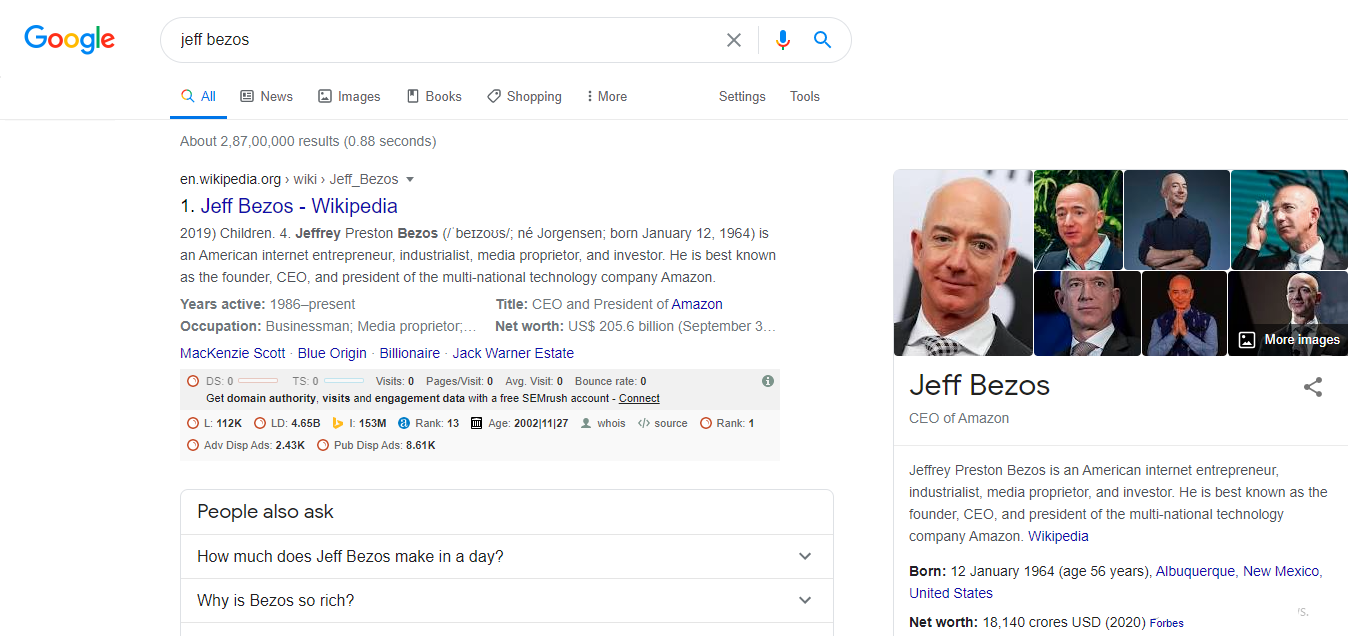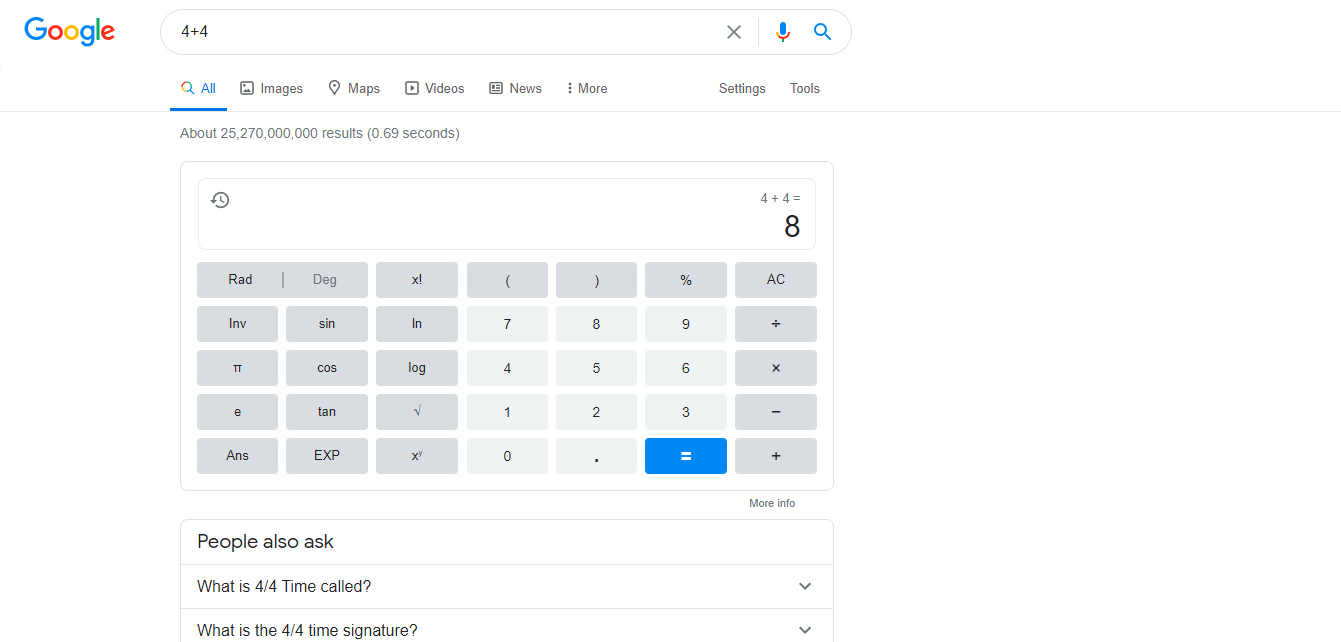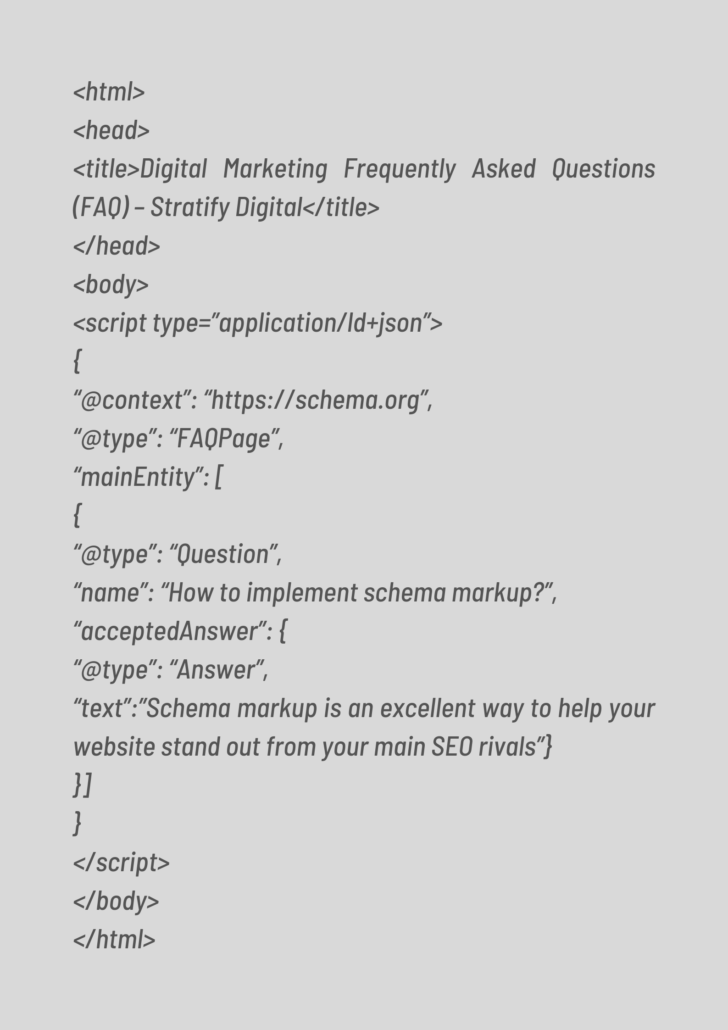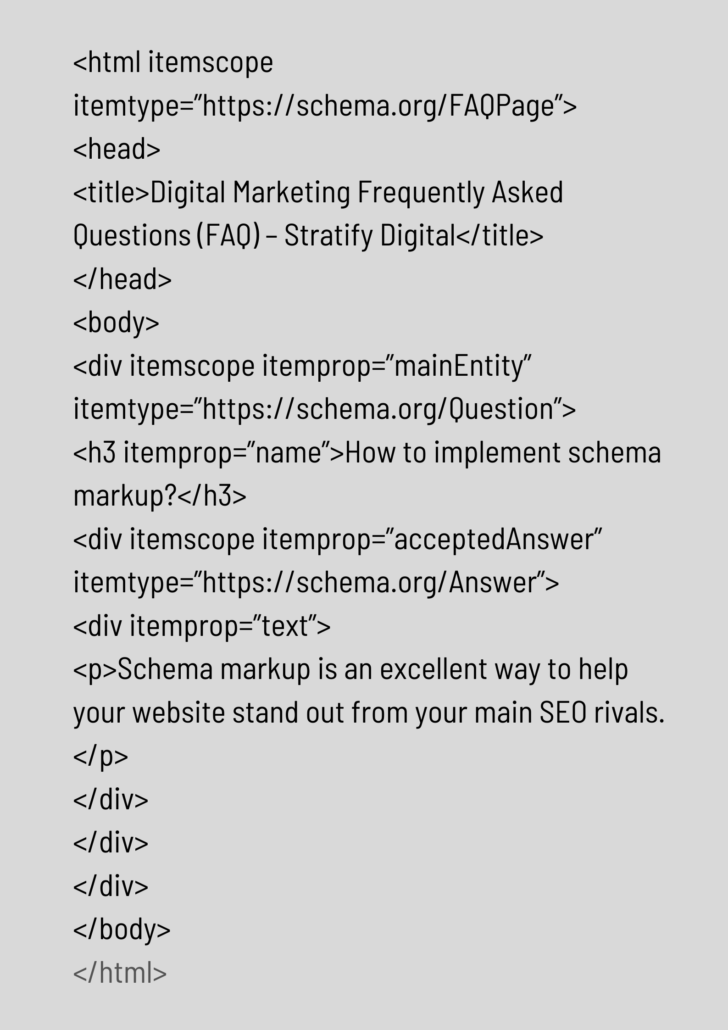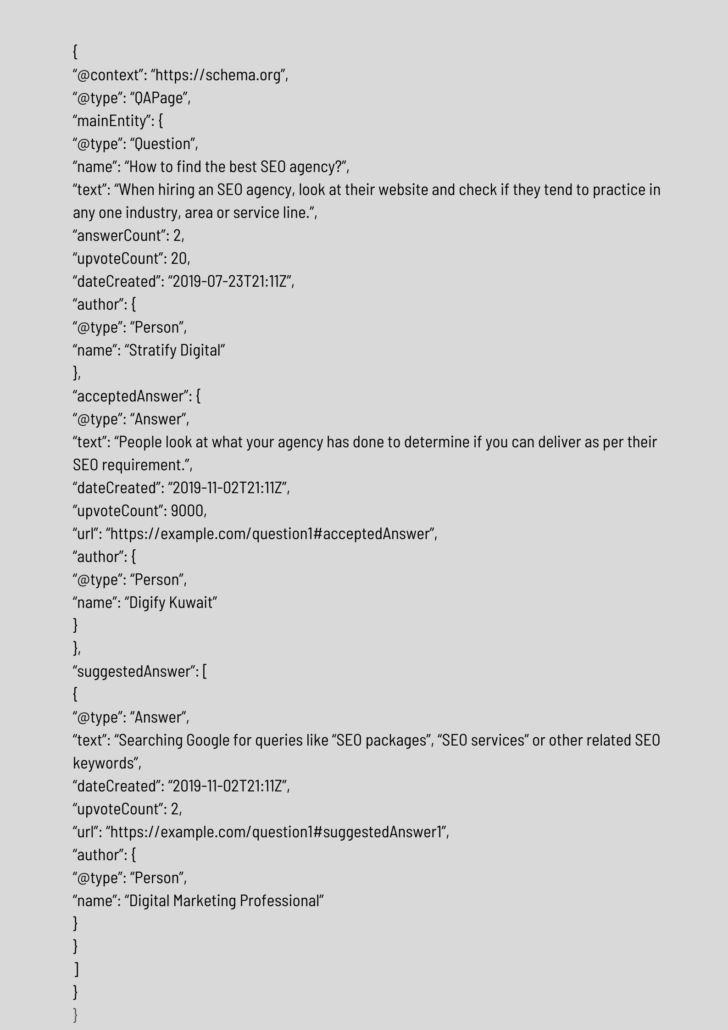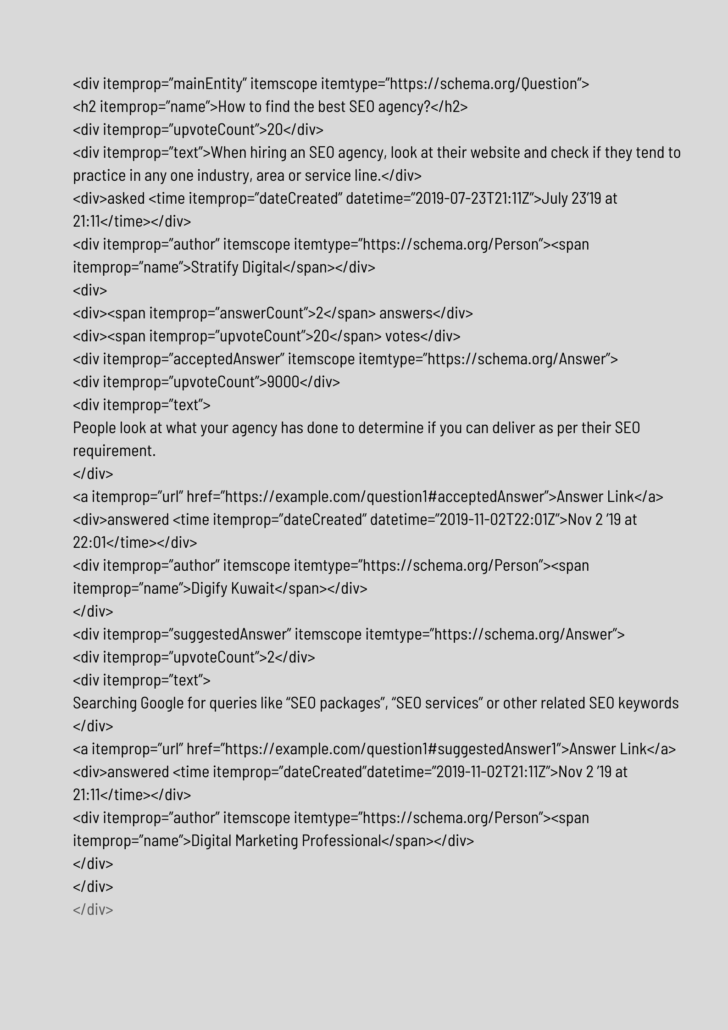FAQ Schema is a new hack that works like a charm. No matter how old or how new your website is, this hack will bring immediate effect to your website. Even if you have almost aero or no links, this SEO strategy can help.
Best of all, unlike most SEO methods, it doesn’t take months or years to get effects — you can see the results just in less than 30 minutes.
As per Neil Patel, out of 10,000 sites crawled, only 17 websites are using this SEO strategy to get efficient results. In other words, your competitors might not know about this SEO hack yet!
What is FAQ schema markup?
FAQ schema markup is a code that you place on your website that tells search engines – this content gets displayed as a question and answer format. When the content is accurately marked up, it means those webpages are eligible for rich snippets on the search engine results page.
Google Search Results
Before we jump into FAQpage schema discussion, we would like to talk about ever-changing Google search results.
Not only Google changes its algorithm frequently, but they also test out new design components. For example, if you search for restaurants near me, you will see a list of local restaurants along with their ratings.
Furthermore, if you look up a person, Google will show you a picture of that person and a quick summary.
For the last many years, Google has adjusted its search results to give you the best experience. For example, if you search “4+4”, Google will show you the solution as “8,” so you don’t have to head over to another webpage.
But you already know this. However, FAQ schema markup is the latest SEO hack that no one is using right now. And best of all, the results show in less than 30 minutes. That’s how quickly Google picks up the FAQ schema addition and adjusts its search engine results.
Selecting The Right Schema Markup: FAQ Schema vs. QA
Before we implement the schema markup on the website, you have to select the proper schema markup. There are two types: QA and FAQ schema.
FAQ schema is to offer a Frequently Asked Question page or have a product or service page that contains frequently asked questions related to the product or service.
Q&A schema is to show when people are providing different types of answers and can vote for the best as per their requirements. Q&A will enable the rich result cards under your search engine results and display all the answers, with the top solution highlighted.
After making sure that you know what these schemas are applied, Google has further guidelines on when to use these schemas for:
Google’s FAQ Schema Guidelines
Google has a separate list of FAQ schema guidelines. FAQ schema needs to be applied if the page has a list of questions and answers.
Valid use cases:
- Moreover, a FAQ page schema gets marked by a website, and there is no other way for the audience to submit alternate answers
- A product or service support page that lists FAQs with no way for the audience to submit other answers
Invalid use cases:
- Any forum page where users can enter multiple answers to a single question
- A product or service support page where users can provide various solutions to a single question
- Don’t use FAQ for advertisement purposes
- All FAQ content must be noticeable to the user on the website source page.
Google’s Q&A Schema Guidelines
Only use the Q&A schema markup if your web page has information as per Q&A format.
Furthermore, users should be able to submit answers to the question. Don’t use Q&A schema markup for content that has only one solution for a single query. Here are some examples:
Valid use cases:
- Any forum page where contributors can submit answers to a single query
- A product or service support page where users can provide solutions to a single question
Invalid use cases:
- Support page where users can submit numerous questions and answers
- A how-to guide that answers a query
- Any blog post that answers an inquiry
- Do not apply Q&A schema markup to all pages on a website or forum if the content does not require the schema markup.
- Q&A markup is for those pages where the focus of the webpage is a single query and its multiple solutions.
- Don’t use Q&A schema markup for advertisement purposes.
If your web content meets these norms, the next step is to decide on how to implement the schema markup onto your website.
How to Implement Q&A and FAQ Schema Markup?
There are two methods to implement schema markup, either through JSON-LD or Microdata. As a leading digital marketing agency in Kuwait, we advise selecting one style and holding to it throughout your website pages. Furthermore, we also suggest not to use both models on the same page.
JSON-LD is what Google suggests wherever possible, and Google has been in the process of attaching assistance for schema markup-powered features. Moreover, JSON-LD format is implemented to the header of your webpage content.
The additional option is Microdata, which includes coding components into your website. Below are examples of how each format works.
#1. FAQ Schema Markup in JSON-LD Format:
#2. FAQ Schema Markup Microdata Format:
#3. Q&A Schema JSON-LD:
#4. Q&A Schema Microdata:
When you are executing the schema markup on your website, use the formats above, and customize them with your content.
If you are unsure about the code is properly implemented or not, use Google’s Rich Result Test. Furthermore, you can add your code snippet to it, and it will tell you if you did it correctly or not.
Furthermore, it will give you feedback about the code.
Achieving Results With FAQ Schema Markup in Less Than 30 Minutes
Once you make the changes to any webpage as per your requirement, you’ll have to log into Search Console and enter the URL of the webpage you customized in the top search bar.
You’ll then have to make sure that Google crawls that page so they can index the results. And within 10 minutes, you’ll notice a spike on your new webpage when you perform a Google search.
Will FAQ Schema Markup Help Me Rank for People Also Ask Snippets and Featured Snippets?
Will FAQ schema markup help with People Also Ask and Featured Snippets? Well, we have not seen any correlation between schema markup and People Also Ask or Featured Snippets.
Optimizing your website content for this will not disturb you, though it can potentially increase your chances to be on here.
Google has been experimenting out how they can display Q&A, FAQ, People also ask, etc, and studying the structured data to understand these.
Will FAQ Schema Markup Help Me Rank for Voice Search?
With a large number of people using smartphones to find answers to questions, this is a very appropriate question!
Furthermore, confirming that over half of the user search queries on Google will be from voice search soon. A lot of Questions from voice search get most of their answers from the featured snippets.
And adding schema markup structured data on your website improves the chances of accepting you into featured snippets, thus increasing the chance of getting featured on voice search.
Conclusion
This simple SEO hack can enhance the visibility of your brand and help increase the power of your website. It’s an easy solution that can take a single day to perform across your primary question, product, or FAQ page.
And as we have already mentioned above, as per the study organized by Neil Patel and his team, out of 10,000 websites only 17 websites are using QA and FAQ schema markup. Therefore, less than 1% of the websites are using this SEO hack. This means that if you take advantage of the schema markup data, you’ll ahead of your competition.



